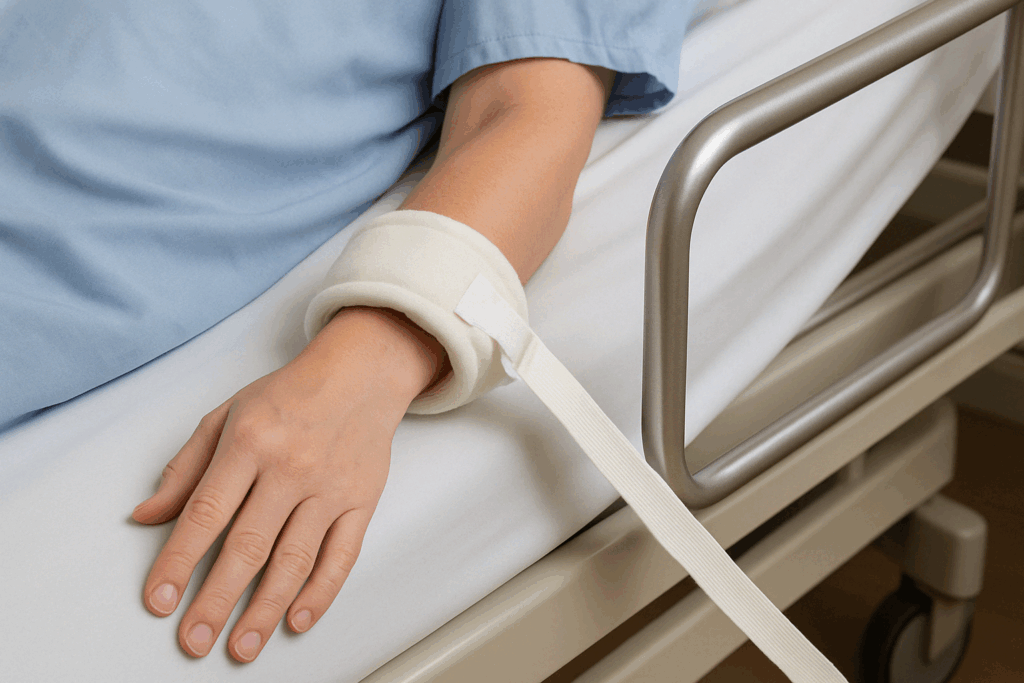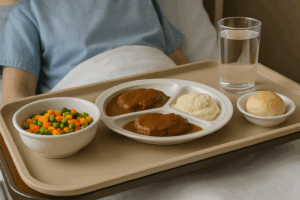 Air Repatriation
Air Repatriation
Hospital Care in Spain vs the UK NHS: A Guide for British Expat Families
Hospital care in Spain isn’t like the NHS. Here’s what British families need to know.
Table of Contents
- Introduction
- Spanish Hospital Care vs NHS Support Expectations
- Consequences for Unaccompanied Patients
- “Hospital or Care Home?” – Navigating Long-Term Care
- Excellent Emergency Care Can Mislead
- Regional Variations in Care Standards
- Firsthand Insights from a Decade of Repatriations
- Advice for Families
- Conclusion
Introduction
When it comes to Spanish hospital care, many British expats are shocked by how different it is from the NHS model they’re used to. Every year, thousands of British citizens retire to sunny Spain seeking a relaxed lifestyle. Spain is home to one of the world’s largest British expat communities – with over 400,000 UK nationals officially registered as residents in 2024. Many are retirees. Understandably, few expect their idyllic new life abroad to end in hospitalisation.
When illness or injury strikes, British families often assume the care their loved one receives will mirror the NHS—safe, attentive, and supported by trained staff for everything from meals to mobility. That’s partly true: Spanish hospitals have a good reputation in emergency care and acute medical treatment. But there is a major gap in ongoing inpatient care, particularly for people over 70 or those with limited independence who don’t have someone with them day-to-day.
This guide shares what we’ve seen first-hand after over a decade of caring for British patients in Spain.
It covers critical differences between hospital systems, offers realistic planning advice, and helps families make informed decisions—whether that’s providing support locally or arranging medical repatriation to the UK.
Spanish Hospital Care vs NHS Support Expectations
One of the most significant differences between Spanish hospitals and the UK NHS is who provides basic personal care for patients.
In the UK, these tasks—helping someone to the toilet, bathing, feeding, brushing teeth—are performed by nurses and healthcare assistants (HCAs). It’s considered the hospital’s job to meet a patient’s medical and daily living needs while they’re admitted.
In Spain, the culture and health system operate differently. While hospital staff manage all clinical care, the patient’s family is usually expected to provide personal support. That includes eating, hygiene, companionship, and supervision. Nurses may not assist a patient with eating or going to the bathroom unless formally assessed. Families are expected to step in or pay for additional help.
The Guardian reports that many Spanish hospitals make this clear: “We treat the illness, but the family looks after the person.” It’s common to see relatives taking shifts at the bedside. For people familiar with NHS care, this can be a shock. Patients with no local family may find themselves unsupported and vulnerable.
Consequences for Unaccompanied Patients

Without someone there, non-medical care often suffers. We’ve seen British patients decline—not because their condition worsened, but due to lack of food, water, and assistance with hygiene.
A confused or weak patient might be unable to eat without assistance. In the UK, a nurse or carer would typically help. In Spain, however, staff often assume a family member will assist with feeding, and if no one is present, the meal may remain untouched. We’ve also found water jugs placed out of reach, resulting in patients not drinking enough. Soiled clothing is sometimes left unchanged for hours.
One of the most serious risks is pressure sores. People who can’t move independently must be turned regularly, often every two hours. Without this care, they can develop painful and dangerous wounds. These situations often arise because patients lack the basic support they need.
In one case shared by The Olive Press, a British woman in her 70s was restrained in a hospital bed. Though she could walk with help, staff tied her wrists and left her in a nappy. The result was bedsores, distress, and a humiliating experience for her and her family. The hospital aimed to protect her—but without anyone to advocate for her needs, the approach caused more harm.
“We arrived to find my dad strapped to the bed. He hadn’t eaten properly in two days. The nurses were kind, but they just didn’t have the time—and no one told us we needed to be there round the clock. It was heartbreaking.”
– Daughter of a British patient, Costa Blanca
“Hospital or Care Home?” – Navigating Long-Term Care Needs
Discharge planning works differently in Spain. In the UK, hospitals usually won’t discharge someone unless there’s a plan for continued care. Social workers and NHS discharge teams help arrange home visits or a place in a care facility.
In Spain, the process is faster—and the responsibility shifts to the family. Hospitals often discharge patients soon after their condition stabilises. That can happen even if the person can’t walk, bathe themselves, or return home safely.
As a result, families must arrange extra support or private care themselves. Families must arrange extra support or private care themselves.
The Guardian shared the story of a British woman trying to care for her mother after a fall in Spain. Although her mother remained incontinent and unable to stand, the hospital insisted on discharge. The daughter was told: “You’re here now, so you’ll take care of her.”
Excellent Emergency Care Can Mislead
Spain’s emergency care is generally on par with other European countries. Patients with heart attacks, strokes or injuries are typically seen quickly and treated effectively. However, this can create a false sense of security about the overall standard of hospital care.
At first, families often feel reassured by the initial hospital experience. However, that confidence can fade once the patient moves from ICU to a general ward. But once a patient moves from ICU to a general ward, things can change. Staff expect daily care to be handled by the family. That includes feeding, moving, and checking on emotional well-being.
Spain Property Guides notes that even long-term residents can be surprised by how little bedside support is provided. For British expats unfamiliar with the system, it’s easy to miss the signs of decline.
Regional Variations in Care Standards
Spain’s healthcare is managed regionally. Each of the 17 autonomous communities runs its own system. According to Lexology, that leads to big differences in service quality, especially outside major cities.
Hospitals in Madrid or Barcelona may have more staff, translators, or experience dealing with foreign patients. In smaller towns, staff shortages are common, and family involvement is even more essential. Not all hospitals offer the same level of help or cultural understanding. Ask specific questions to understand what your loved one can expect.
Firsthand Insights from a Decade of Repatriations
At SkyCare, our medical leadership and operations team bring over a decade of experience in international repatriation—through ongoing work with our long-established partner, BM Ambulance. Across both services, we’ve supported hundreds of families in Spain, witnessing first-hand the gaps in care that vulnerable patients often face. That deep experience shapes how we respond today—ensuring fast, safe, and compassionate transfers back to the UK when it matters most.
Advice for Families
When your relative is in ICU: Stay informed. ICU care in Spain is generally excellent. Focus on communication. Ask the doctors for updates, and keep notes. If repatriation is likely, start planning early.
Once they are on a general ward: Visit if you can. If not, hire a local English-speaking carer. Don’t assume nurses will handle meals or toileting. Speak with staff and ensure your loved one’s basic needs are covered.
Watch for signs of decline: Missed meals, confusion, and dehydration are red flags. Bring easy-to-eat food or nutritional drinks such as Ensure, if the patient can swallow safely. Offer fluids regularly, or ask staff for help. A calm, supportive presence at the bedside can make a huge difference.
Stay connected: Talk to your relative daily and contact the hospital regularly for updates. Be aware that most nurses may speak little or no English, so you may need an interpreter or help from a bilingual family member. Doctors often speak good English and can provide more detailed information, but they are usually very busy, often only available for a short time each day, seldom return calls — and typically do not work weekends. Keep your repatriation provider informed throughout to avoid delays if travel becomes necessary.
Why Acting Early Matters
If you’re planning to bring your loved one back to the UK, it’s best not to wait. Delays can lead to avoidable complications, especially in older patients who are already vulnerable.
Muscle Wasting Happens Fast: Patients on bed rest start to lose muscle strength within days. Older adults can lose up to 10% of their muscle mass in just one week if they remain immobile. This loss makes recovery harder and prolongs rehabilitation once home.
Risk of Infection Increases: The longer a patient stays in hospital, the higher the risk of developing infections — especially urinary tract infections linked to catheters. These can lead to serious complications like sepsis.
We Can Administer Medications in Transit: If the patient is on antibiotics, you don’t need to wait for the course to finish before arranging travel. Our medical team can safely administer prescribed medication during the flight or road ambulance back to the UK.
Conclusion: Be Informed, Be Present, and Be Ready
Spain offers excellent emergency care. But daily bedside support is often up to the family. That’s a sharp contrast to the NHS. Understanding this difference can protect your loved one’s well-being.
Whether you fly out, hire local help, or begin planning a return to the UK, proactive involvement makes all the difference. SkyCare and BM Ambulance offer fast, compassionate, medically led solutions to help bring your loved one home. Our teams support families facing these situations every day.
Learn more about our Spain air ambulance and repatriation services here. We’re here 24/7 to help.
Worried About a Loved One in a Spanish Hospital?
Our medical team is here 24/7 to guide you through your options and help plan a safe return home.

 SkyCare
SkyCare 